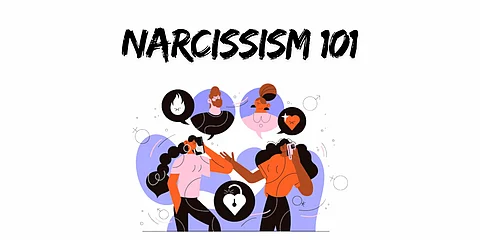
- NEWS
- the EDIT
- COMMENTARY
- BUSINESS
- LIFE
- SHOW
- ACTION
- GLOBAL GOALS
- SNAPS
- DYARYO TIRADA
- MORE

Valentine’s Day is a time to celebrate love and relationships, but it’s also an opportunity to reflect on the dynamics of those relationships — especially when they involve narcissistic partners. While the word “narcissist” is often thrown around loosely, true narcissism goes far beyond someone who simply loves attention. Understanding narcissistic behavior can help individuals protect themselves from toxic relationships and emotional exhaustion.
Narcissism is characterized by a deep need for admiration, a lack of empathy, and an inflated sense of self-importance. However, not everyone with narcissistic traits has Narcissistic Personality Disorder (NPD), a diagnosable condition in which these traits cause significant impairment in personal relationships and daily life.
One of the key concepts in narcissism is narcissistic supply — the attention, validation, and admiration that narcissists crave to maintain their self-image. People close to narcissists, such as romantic partners and family members, often serve as their primary sources of supply. Unfortunately, this supply is never truly satisfied, leading to an endless cycle of neediness and emotional manipulation.
According to Dr. Ramani Durvasula, a licensed clinical psychologist and an expert on narcissism, there are six primary types of narcissists. While they all share the core traits of self-importance and lack of empathy, they manifest in different ways:
The grandiose narcissist
Often what comes to mind when people think of narcissism — charming, charismatic, arrogant, and pretentious. These individuals believe they are superior to others and have an exaggerated sense of their own importance.
The vulnerable narcissist
Unlike the grandiose type, vulnerable narcissists appear insecure, anxious, and hypersensitive to criticism. They may live in fantasies of their own greatness but fail to take action to achieve it. They often adopt a victim mentality to manipulate others into feeling sorry for them.
The malignant narcissist
This is the most dangerous form of narcissism, as it incorporates elements of psychopathy, Machiavellianism, and sadism. Malignant narcissists can be coercive, controlling, and even abusive, often isolating their victims and using manipulation to get what they want.
The communal narcissist
These individuals appear to be generous and selfless, gaining validation by presenting themselves as saviors, rescuers, or moral authorities. However, their kindness is often performative — designed to boost their ego rather than genuinely help others. A communal narcissist might be the PTA parent who volunteers for every event but is emotionally abusive at home.
The self-righteous narcissist
Highly judgmental and rigid, these narcissists believe they are morally superior to others. They may be workaholics, financially stingy, and dismissive of those who do not meet their standards. Empathy is lacking, and they often refuse to help others, believing that people should be responsible for their own misfortunes.
The neglectful narcissist
This type views others as objects, neglecting them emotionally until they need something. They show little care for those around them, ignoring their struggles or refusing to provide emotional support unless it benefits them directly.
Being in a relationship with a narcissist can be emotionally draining. Some key red flags to look out for include:
Excessive need for admiration. They constantly seek validation and compliments.
Lack of empathy. They struggle to recognize or care about your emotions.
Manipulation and gaslighting. They twist situations to make you doubt yourself.
Sense of entitlement. They believe they deserve special treatment.
Unstable relationships. They may idealize you at first but later devalue you.
If you recognize narcissistic behaviors in someone close to you, it’s important to establish boundaries and protect your emotional well-being. Seeking therapy or support groups can help you navigate these relationships, whether it means setting limits or walking away entirely.
This Valentine’s Day, prioritize relationships that uplift and nurture you. Love should be mutual, respectful, and fulfilling — not a constant battle to meet someone else’s unquenchable need for validation.
